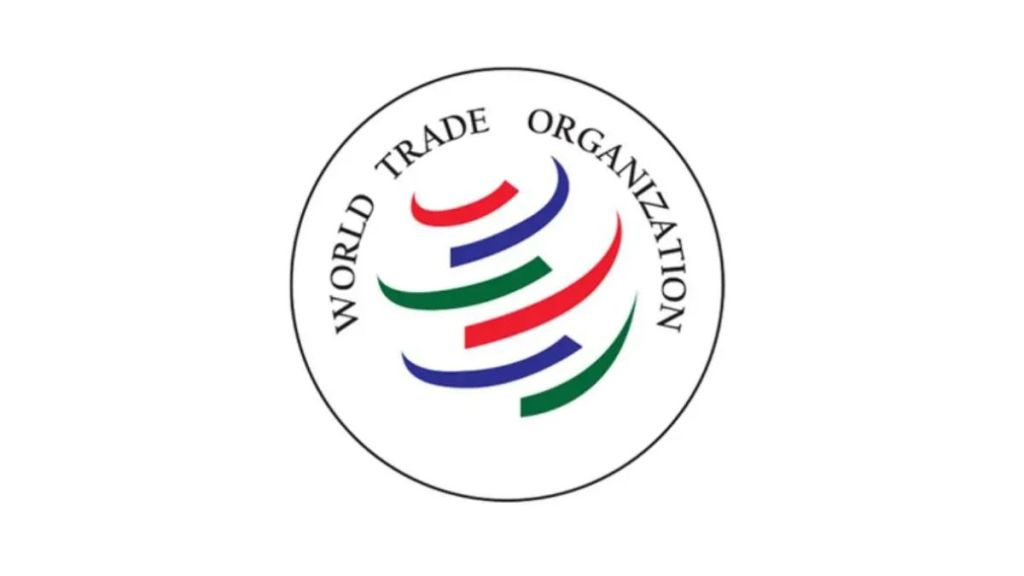The 13th Ministerial conference of the World Trade Organisation (WTO) late Friday decided to extend the moratorium on taxation of cross border electronic transmissions for another two years but could not take any decision on a permanent solution on public stockholding of foodgrains for food security and fisheries subsidies which were key Indian demands.
Lack of decision on public stockholding at the meeting, however, does not impact government procurement of foodgrains and public distribution system as India has had a permanent peace clause in perpetuity since 2014 . Under the peace clause India’s intervention in the food grain markets for livelihood security of farmers and food security of the population cannot be challenged in the dispute settlement system of the WTO.
On another key demand by India on reviving the system of appeal in the dispute settlement system, the ministers decided to speed up the discussions on the issue of appeal and review.
The discussion by officials on a fully and well-functioning dispute settlement system accessible to all Members by 2024 would also focus on all unresolved issues. It was decided in the last ministerial conference to have the dispute settlement, which has been non-functional since 2019, fully functional by 2024.
On fisheries where India is asking for a moratorium on subsidies for distant water fishing for 25 years by countries like China, Norway, Japan which have large fleets there has been no agreement. Fishing beyond 200 nautical miles from the seashores of a country is termed distant water fishing. Due to no word in the declaration on the issue, India also gets to keep its subsidy to its fishermen.
The declaration on agriculture at the conference talks of improvements in training and technical assistance provided under the WTO Technical Assistance and Training Plan to assist developing Members, including Least Developing Countries, to overcome the challenges they face in timely engagement on Sanitary and Phytosanitary Measures (SPS Agreement) and the Agreement on Technical Barriers to Trade (TBT).
Another achievement of the conference is agreement on LDC Graduation. Least Developed Countries (LDC) lose benefits like duty-free and quote-free exports when they graduate to the developing countries category. At the MC-13 it was decided to keep this concession for LDCs for 3 years. In this period no country will be allowed to question the concession in the dispute settlement system of the WTO. Earlier this time period was three years. This period was for allowing these countries for capacity building so that they can navigate the world trade ecosystem without the LDC benefits. For three years these LDCs will be provided handholding.
Bilaterally some developed countries can give LDCs quota-free and duty-free access to their markets for even longer.
Though the e-commerce taxation moratorium got extended, the ministers agreed to continue to re-invigorate the work under the Work Programme on Electronic Commerce with particular focus on its development dimension, taking into account the economic, financial and development needs of developing and least-developed country Members.
The work programme on e-commerce aims to examine trade-related issues associated with e-commerce. These include the protection of privacy and public morals and prevention of fraud, access to and use of public telecommunications transport networks and services, rules of origin, increasing the participation of developing countries in the e-commerce marketplace, protection and enforcement of copyright and trademarks, and enhancing the participation of developing countries and their small and medium-sized enterprises (SMEs).
India also successfully managed to keep non-trade issues out of the agenda.
India and South Africa blocked an attempt to get the China-inspired pact – Investment Promotion for Development – included in the WTO even though it had a backing of more than 120 countries. Another non-trade issue of linking trade to gender has also been successfully opposed.
The declaration noted that women’s economic empowerment and women’s participation in trade contributes to economic growth and sustainable development.
“We take note of WTO work, including in collaboration with other relevant international organisations, through activities such as capacity-building initiatives and sharing experience to facilitate women’s participation in trade,” the draft ministerial declaration said.
Instead of taking a stand on prioritising Micro Small and Medium Enterprises (MSME) in trade, the declaration just noted their role in the economy of their countries.
The WTO took two new members – Comoros and Timor Leste. Comoros is a group of islands off the eastern coast of Africa while Timor Leste is in Southeast Asia on the southernmost edge of Indonesian archipelago. This takes the total membership of the global trade body to 166.


